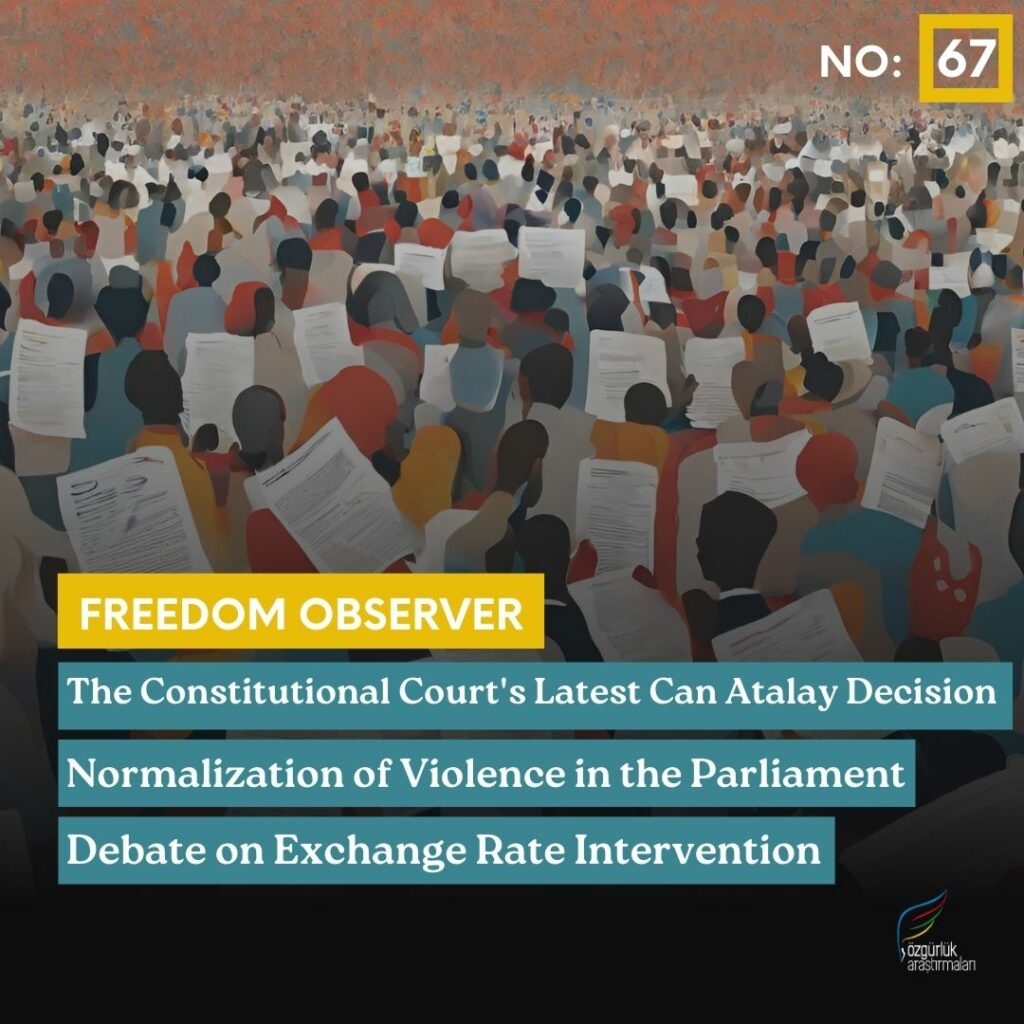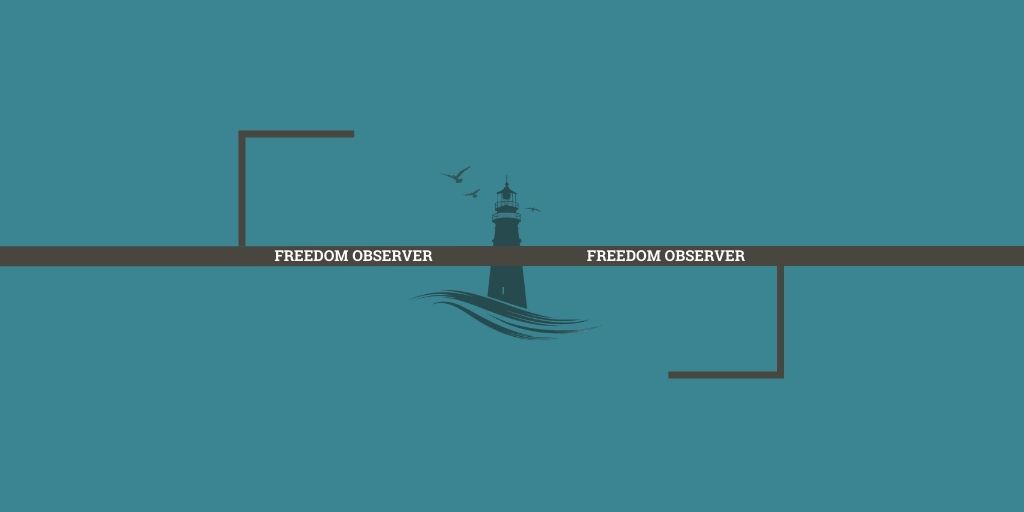
From Editor-in-Chief
Palestinian President Mahmoud Abbas, whom President Erdoğan has been inviting to visit Turkey for some time and lamenting his lack of response, finally came to Turkey last week and delivered a speech at the Grand National Assembly. In his remarks, Abbas declared that Gaza is an inseparable part of Palestine and announced his intention to visit Gaza soon. He also emphasized that the Palestinian issue should be resolved not through war but through peaceful and diplomatic means within the framework of international law. Criticizing Israel’s attacks, Abbas stated, “Security and military methods will yield no results; peace can only be achieved through political solutions, justice, and methods based on international law, as well as on the legitimate rights of the Palestinian people.” Consistent with this perspective, Abbas referred to the ongoing case against Israel at the International Court of Justice, predicting that the days when “Netanyahu and his gang” will be held accountable in international courts are near.
Given that Mahmoud Abbas, the principal advocate of the case, delivered a relatively calm and reasonable speech emphasizing a peaceful resolution to the Palestine and Gaza issue, it is likely President Erdoğan was not entirely satisfied. Erdoğan, known for his consistently strong rhetoric on the Palestinian cause, often speaking loudly and using harsh and exaggerated language regarding the Israeli government while frequently expressing sympathy for Hamas, might have found Abbas’s approach lacking. Indeed, the absence of any joint statement following Abbas’s speech could be seen as an indication of this dissatisfaction.
Another interesting point regarding this issue is that Palestinian President Abbas invited Özgür Özel, the leader of Turkey’s main opposition party, the Republican People’s Party (CHP), to visit Palestine. According to CHP Deputy Chairman Deniz Yücel, “President Abbas expressed his appreciation for CHP’s historical support for the Palestinian cause and for Mr. Özgür Özel’s efforts to promote the Palestinian cause globally in his capacity as Vice President of the Socialist International.” It appears that, like all foreign observers and statesmen, President Abbas is paying attention to CHP’s rise since the March 2024 elections. By inviting Özel, whom he regards as a “comrade” from the Socialist International, Abbas seems to be investing in Turkey’s future.
Meanwhile, following the Constitutional Court’s ruling, the parliamentary decision to revoke the parliamentary status of Ş. Can Atalay, a deputy from the Workers’ Party of Turkey (TİP), was legally invalid, the opposition parties requested an extraordinary session of the Turkish Grand National Assembly on August 16 to facilitate Atalay’s release from prison and allow him to take his oath and assume his duties. Unfortunately, the expected outcome did not materialize. The CHP’s proposal for a general debate in the Assembly on the judicial and political crisis surrounding Can Atalay’s parliamentary status was rejected by the votes of the AKP and MHP. Thus, unsurprisingly, for Turkey under the AKP-MHP coalition, the Constitution and the Constitutional Court’s ruling were blatantly ignored, and Deputy Ş. Can Atalay remains in prison.
Nevertheless, the opposition parties, especially the CHP, seem determined not to let this matter go. In an attempt to rectify this injustice, the CHP is preparing a new initiative to reconvene the Parliament, which is currently in recess, with the hope of resolving the Can Atalay issue. However, considering the ruling parties’ well-known disregard for the Constitution and the law, it seems unlikely that this initiative by the opposition will yield any results. For a more detailed legal analysis of this matter, please refer to the following article by our colleague A. Rıza Çoban.
Another important point related to the Can Atalay issue is the unfortunate incident of violence that occurred during the session on August 16 involving an opposition deputy and a member of the ruling party. During a scuffle that broke out after an AKP deputy, notorious for his “questionable conduct,” physically attacked TİP deputy Ahmet Şık with punches and kicks while Şık was presenting his views on the Can Atalay issue from the podium, blood was spilled in the Assembly. This disgraceful attack, which also violated the immunity of the rostrum, undermined the Turkish Grand National Assembly’s role as a platform where public issues are freely debated by the “representatives of the nation.” There is also a bitter irony in this incident: The Assembly’s Board of the Presidency has imposed a “reprimand” disciplinary penalty not only on the attacking deputy but also on the deputy who was assaulted! Below, you will find an analysis by Ömer Faruk Şen, focusing on what this unfortunate incident signifies for the expectations of democratic politics.
A comprehensive and expert analysis of the latest developments in the economy can be found in the article by our colleague Caner Gerek.
See you in the next issue of Freedom Observer.
* Prof. Dr. Mustafa Erdoğan
The Constitutional Court’s Latest Can Atalay Decision
As is well known, Can Atalay, who was on trial while detained for the Gezi case, was elected as a Member of Parliament for Hatay from the Workers’ Party of Turkey in the 2023 general elections. Following his election, Atalay petitioned the 3rd Criminal Chamber of the Court of Cassation, which had his case pending on appeal, requesting a halt to the proceedings and his release on the grounds of his parliamentary immunity. However, the Chamber, disregarding the Constitutional Court’s previous violation rulings in similar cases, rejected Atalay’s requests, arguing that under Articles 83 and 14 of the Constitution, he could not benefit from parliamentary immunity. Subsequently, in an individual application to the Constitutional Court, the Court ruled that Atalay’s rights to liberty and security, as well as his electoral rights, had been violated. [1] Refusing to comply with this ruling, the 3rd Criminal Chamber of the Court of Cassation argued that the Constitutional Court had overstepped its authority and filed a criminal complaint against the Court’s members. Additionally, it upheld some of the convictions in the Gezi case, including those involving Atalay.
As a result of the second application to the Constitutional Court, the Court once again determined that there had been violations of the right to the individual application, the right to vote and be elected, and the right to liberty and security due to non-compliance with its previous decision.[2] The Court ordered that a copy of its ruling be sent to the Istanbul 13th High Criminal Court to address these violations. The actions required included commencing a retrial for the applicant, suspending the enforcement of the conviction, releasing the applicant from the penal institution, and issuing a suspension decision in the new trial. However, instead of complying with the Constitutional Court’s decision, the first-instance court sent the file back to the 3rd Criminal Chamber of the Court of Cassation. The Chamber once again refused to comply with the Constitutional Court’s ruling and unanimously decided to forward a copy of its decision to the Grand National Assembly of Turkey (TBMM) to initiate proceedings for the revocation of the plaintiff’s parliamentary status due to a finalized conviction.
During the 54th session of the Turkish Grand National Assembly (TBMM) on January 30, 2024, presided over by AKP Deputy Speaker Bekir Bozdağ, the letter from the 3rd Criminal Chamber of the Court of Cassation was read, and it was announced to the TBMM General Assembly that Atalay’s parliamentary status had been revoked. Arguing that this decision constituted a de facto amendment to the parliamentary bylaws and was legally invalid, 125 deputies from the Republican People’s Party (CHP) submitted an application to the Constitutional Court. The Constitutional Court published its detailed decision regarding this application in the Official Gazette on August 1, 2024.[3]
Referring to its previous individual application rulings regarding Atalay, the Constitutional Court emphasized that its decisions are binding for all public authorities, including judicial bodies, and declared that the conviction decision against Can Atalay was null and void. According to the Constitutional Court, “It is legally impossible to speak of a finalized judgment regarding Hatay Deputy Şerafettin Can ATALAY after the Court’s ruling of rights violation on 25.10.2023. Following the Constitutional Court’s violation decision, the annulment of the decision that caused the violation, as stated in the judgment section of the decision, is a constitutional obligation. No public authority, including courts, can base their actions on a judicial decision that has been determined by the Constitutional Court to violate the Constitution, and a decision that has been found to be unconstitutional cannot be legally recognized as valid.” The Court reiterated the binding nature of its decisions, stressing that other courts and public authorities do not have discretion regarding compliance with these rulings.
The Court emphasized that its violation decision is also binding on the legislative body, stating that the decision by the Court of Cassation not to comply with the Constitutional Court’s ruling is null and void and that the de facto situation created based on this decision has no legal consequence. However, while the Constitutional Court stressed that the decision of the Court of Cassation was “null and void,” it did not declare the “TBMM action” based on this null and void decision to be null and void itself. Instead, the Court ruled that there was no need to make a decision regarding this action, which it described as a de facto situation.
In our opinion, if the Constitutional Court intended to make a meaningful decision, it should have also declared the “TBMM action” null and void. As a result, the decision has had no effect, and the Parliament, which was called for an extraordinary session by the opposition parties on August 16, 2024, to discuss the implications of the Constitutional Court’s ruling, ended the session without addressing the ruling due to incidents of violence that erupted during the meeting.
In essence, the Speaker of the Assembly should have read out the Constitutional Court’s decision of December 21, 2023, concerning Şerafettin Can Atalay (3) in the General Assembly and confirmed that Can Atalay’s parliamentary status continues, allowing him to enjoy his privileges. The legislative body should not be complicit in violating the Constitution. Parliamentary immunity is granted not for the personal interests of the deputies but to ensure that the national will is fully represented. The Speaker of the Assembly has a duty to uphold the national will.
* Doç. Dr. Ali Rıza Çoban – Constitutional Lawyer
Normalization of Violence in the Parliament
The incidents of violence occurring in the Turkish Grand National Assembly (TBMM) have recently emerged as developments that deeply undermine democratic values and the rule of law. AK Party Deputy Alpay Özalan attacked TİP Deputy Ahmet Şık while he was speaking at the parliamentary podium. During a special session convened to discuss the Constitutional Court’s ruling that “the decision to revoke Can Atalay’s parliamentary status is null and void,” which was held specifically for Can Atalay, chaos ensued after Şık remarked, “You have no shame at all. Not an ounce of shame. You have no dignity.” In the ensuing brawl, two deputies who tried to break up the fight were also struck, and blood splattered on the parliament steps. DEM Party member Gülistan Kılıç Koçyiğit’s eyebrow was split open, requiring her to be taken to the parliamentary hospital. CHP member Okan Konuralp was also injured. Following the brawl, both Şık and Özalan received a reprimand.
While many politicians condemned this attack, the government side, instead of making calming statements, used language that endorsed the violence. For instance, Presidential Chief Advisor Ahmet Selim Köroğlu stated, “This is the Grand National Assembly of Turkey, not a free-for-all; if you insult, you’ll get a response. Osman Kavala, Selahattin Demirtaş, and Can Atalay are terrorists.”[4] Shortly after the incident, AKP Deputy Chair of Human Rights Ceren Tuncer shared a video of Özalan attacking Şık on the platform X with the caption, “For those who understand, in the language they understand.” Later, she shared another video of Özalan from 2018, saying, “The king did what was necessary.” Commenting on the brawl, MHP leader Devlet Bahçeli said, “Without the Nationalist Movement Party, one of the founders of the People’s Alliance, the AK Party did what was necessary, demonstrating a commendable stance by not allowing injustice, unlawfulness, and banditry. Those who ask ‘Where is the minor partner?’ got what they deserved, and a decision that meets the expectations of our nation was made without us.” [5]
These statements from the ruling party following the events have contributed to the normalization of violence and increased social polarization.
CHP leader Özgür Özel criticized the violence and called on Speaker of the Parliament Numan Kurtulmuş to intervene in the situation. He also urged Kurtulmuş to take the initiative and chair a meeting with representatives of the political parties. Additionally, Özel criticized Ahmet Şık for his “tone,” to which Ahmet Şık responded, “I want to point out that there is a chasm between Özgür Özel, the group leader, and Özel, the CHP leader. Özgür Özel believes he must first criticize me in order to condemn Alpay Özalan’s attack. This is precisely the political line drawn by the ruling party.”
One of the most significant institutions violated by this incident is legislative irresponsibility (or immunity of the podium), a component of parliamentary immunity. Legislative irresponsibility, guaranteed by Article 83 of the Constitution, stipulates that members of Parliament cannot be held accountable for their “votes and words in parliamentary proceedings and the opinions they express in the Assembly.” This provision is a safeguard to ensure that deputies can perform their duties as representatives of the people without fear of pressure or threats. However, when deputies are physically attacked for the views they express at the podium, it undermines the meaning of these immunities and severely damages the functioning of the democratic system.
The incident in the Parliament should not be viewed merely as an individual attack. The normalization of such incidents and their endorsement by some parties could lead to a broader acceptance of violence within society and further weaken Turkish democracy, which is already experiencing erosion. In this regard, protecting parliamentary immunity and ensuring that the physical integrity of deputies is not under threat is essential for maintaining the minimum standards of a democratic system. The Speaker of the Parliament and political parties must take the necessary steps to prevent violence and rebuild a culture of democratic debate.
* Dr. Ömer Faruk Şen– Missouri University
Debate on Exchange Rate Intervention
Since September 2021, when Turkey embarked on an economic experiment dubbed the “Turkey Economy Model” by the government following a decision to lower interest rates, the country has had to confront several long-standing economic assumptions. One of these assumptions was that low interest rates would reduce production costs and, coupled with increased investments, would lead to faster economic growth and improved prosperity. However, this experiment resulted in several adverse outcomes, including a rapid increase in the exchange rate, soaring inflation, a sharp rise in asset prices, market distortions, and an unpredictable investment environment due to deteriorating market conditions. The current state of affairs has led to the creation of a high-interest environment to slow down the economy and restrict credit.
Despite the claims of the Turkey Economy Model, no significant acceleration in exports was achieved. The rapid increase in imports exposed the flawed premise that a devalued Turkish lira would lead to high export performance. Today, discussions around the exchange rate continue, but the debate has shifted from concerns about the devaluation of the lira to concerns about it being overly valued.
The shift in debate from an excessively undervalued Turkish lira to an excessively overvalued one was sown by efforts to control the exchange rate and maintain it at a certain level before the presidential elections. Following the elections, the exchange rate was allowed to rise slightly, stabilizing around 32 TL for an extended period. The Central Bank openly stated that the exchange rate would not increase significantly for some time due to concerns that a rise in the exchange rate could trigger inflation. However, inflation increased much more than the exchange rate during this period, sparking debates about Turkish lira-denominated goods and services being overly expensive. Exporters and those in the tourism sector, whose revenues are tied to foreign currencies, argued that this situation was unsustainable and frequently engaged in lobbying efforts.
Expectations have now shifted in the opposite direction, with concerns that Turkey might be driven towards rapidly increasing imports and declining exports due to an overvalued lira, ultimately leading to a high current account deficit. However, this scenario has not materialized so far.
Turkey Recorded a Current Account Surplus in June
In June, under economic conditions where the exchange rate remained stable despite high inflation, Turkey’s current account showed a surplus for the first time in a long period. According to the Central Bank of Turkey’s data, the country registered a current account surplus of $407 million in June. Excluding gold and energy, the current account surplus was $4.55 billion. This trend suggests that there may not be a significant increase in imports in the near future. One possible conclusion from this is that the exchange rate level is not the primary determinant in foreign trade and the current account balance. While the appreciation of the Turkish lira does have a tendency to increase imports to some extent, if the exchange rate is left to the free market, this effect would be balanced by an increasing exchange rate due to a gradually decreasing supply of foreign currency. However, when the exchange rate is not left to the free market, and inflation remains high, it is normal for imports to increase to a certain extent. The main reason why the appreciation of the lira has not led to an increase in imports so far is the slowdown in domestic economic activities.
The gradual interest rate hikes by the Central Bank are beginning to show their effects, albeit slowly. As interest rates rise, economic activity is contracting, which negatively impacts Turkey’s imports. Despite the exchange rate’s tendency to increase imports, the contraction in the domestic market has a more dominant effect on reducing imports. In Turkey, imports rise as economic activities accelerate and fall as they slow down. Therefore, even if the Turkish lira appreciates, this effect does not manifest clearly in imports due to the contraction in the domestic market. Consequently, under current conditions, the exchange rate level is not the main factor in determining imports. If economic activity revives and the exchange rate is kept stable, demand for imports will increase.
Under these circumstances, the Central Bank and the government should focus on reducing inflation as quickly as possible and ending their periodic market interventions. The longer these interventions continue, the more anomalies emerge in other economic indicators, and these anomalies deepen over time. The Central Bank’s management is aware of the risks it is taking and does not view this situation as ideal. In contrast, the government previously saw its market interventions as an ideal approach rather than a risk, which led to the current economic situation. Going forward, much depends on how closely the government aligns with the Central Bank’s perspective. Beyond verbal support, practical assistance is necessary. However, even if they take these steps, achieving success will not be easy.
* Dr. Caner Gerek
[1] Şerafettin Can Atalay (2) [GK], B. No: 2023/53898, 25/10/2023, karara şuradan erişilebilir: https://kararlarbilgibankasi.anayasa.gov.tr/BB/2023/53898
2 Şerafettin Can Atalay (3) [GK], B. No: 2023/99744, 21/12/2023, karara şuradan erişilebilir: https://kararlarbilgibankasi.anayasa.gov.tr/BB/2023/99744
3 AYM, E.2024/45, K.2024/61, 22/02/2024, karara şuradan erişilebilir: https://normkararlarbilgibankasi.anayasa.gov.tr/ND/2024/61
4 https://x.com/aselimkoroglu/status/1824427577206870500
5 https://x.com/onediocom/status/1824783121830527371





